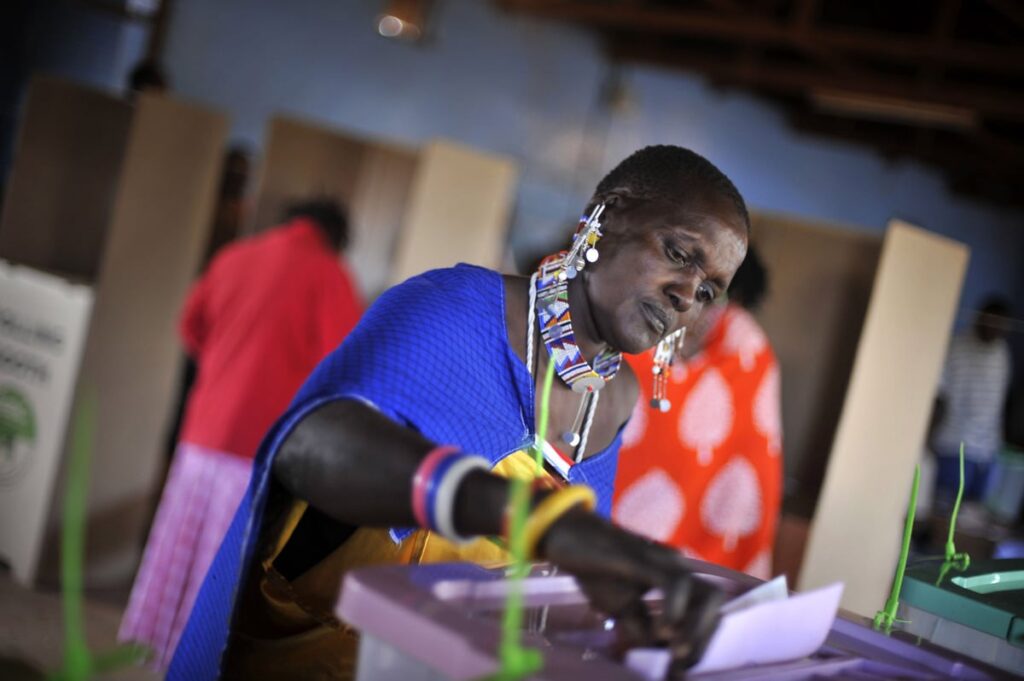
The Kenyan Constitution of 2010 was a transformative document that set the stage for a more inclusive electoral system, explicitly granting all citizens the right to vote, irrespective of their location. This recognition came amidst a growing understanding of the Kenyan diaspora’s economic and political importance, particularly in remittances and global influence. The 2010 reform laid the legal foundation, and the Independent Electoral and Boundaries Commission (IEBC), under Chairman Ahmed Issack Hassan, was tasked with creating mechanisms to make diaspora voting a reality. Yet, over a decade later, the practical implementation of these voting rights has fallen short.
After the constitutional reform, the IEBC initiated pilot projects to enable voting for Kenyans abroad. They set up registration and polling centers in key diplomatic locations such as embassies and consulates. As part of these early efforts, I had the opportunity to meet with IEBC members during their tour of the United States. During our discussion, I shared my personal views as a Kenyan youth on how the pilot program could be improved to engage the diaspora more effectively. Following this engagement, polling centers were established in major U.S. cities, including Washington, D.C., New York, and Los Angeles, giving Kenyan Americans their first opportunity to vote in the 2013 presidential elections. However, these initial trials faced criticism for their limited reach, as they only covered select cities, leaving many Kenyans abroad disenfranchised.
Despite the promising start, the early diaspora voting projects were plagued by logistical challenges. Many Kenyans abroad, particularly those without passports, found registration cumbersome, as only passports were initially accepted as identification. In response to growing pressure from the diaspora community, a pivotal High Court decision in 2022 expanded registration eligibility to include Kenyan national IDs. This decision was a significant step forward, simplifying the registration process and increasing participation. Critics, however, pointed out that logistical hurdles remained, including ballot transportation, staff shortages, and concerns about electoral transparency.
The 2022 ruling opened the door for broader participation, leading to a modest increase in diaspora voter registration during the subsequent elections. However, challenges persisted, primarily due to the limited resources of the IEBC and its inability to establish more comprehensive voting centers outside the major consulates.
When comparing Kenya’s diaspora voting system to other nations, it becomes clear that Kenya’s approach is relatively restrictive. Countries like South Africa have embraced a more expansive model, allowing their diaspora to vote in national and local elections. Ghana has streamlined its voting procedures, incorporating online registration and mobile voting units, which increase accessibility for its citizens abroad. By contrast, Kenya’s reliance on physical voting locations in embassies remains a significant limitation, particularly for those far from major cities. Implementing online or digital platforms could significantly broaden access for Kenyan Americans and other diaspora members.

Kenyan Americans operate within a unique framework of dual citizenship, a status that was legalized in the 2010 Constitution. While this allows them to maintain ties with both Kenya and the United States, it also brings challenges. Issues of political loyalty and expectations about civic duty are common, as dual citizens must balance responsibilities in both countries. Advocates argue that dual citizenship should be viewed as a strength, fostering a more globally informed and engaged electorate. However, dual allegiance also complicates the political landscape as Kenyan Americans navigate U.S. political dynamics while seeking meaningful participation in Kenyan elections.
The Kenyan diaspora’s engagement in the electoral process has implications beyond voting. Their involvement—or lack thereof—affects policy decisions, economic development strategies, and Kenya’s overall democratic fabric. Remittances from the diaspora contribute significantly to Kenya’s GDP, yet limited electoral participation undermines their political influence. A broader voting system would not only enhance democratic legitimacy but also encourage greater economic investment from the diaspora.
The upcoming Diaspora Voting Bill 2024, spearheaded by Mr. Danson Mukile, seeks to address these challenges. It proposes allowing the diaspora to vote 30 days before Kenya’s official election day, which, according to the 2010 Constitution, falls on the second Tuesday of August every five years. This measure would alleviate logistical burdens, granting more time for ballot processing and verification. Additionally, early voting aligns with global best practices, offering a clear path to broader and more effective diaspora participation.
Reforms need to focus on modernizing Kenya’s voting infrastructure. Embracing digital solutions, such as biometric registration and online voting, could mitigate logistical issues and significantly increase turnout. Furthermore, ensuring adequate funding for the IEBC is essential to empower the Commission to fulfill its constitutional mandate effectively. President William Ruto’s role will be critical, as his administration has the power to champion reforms that can either strengthen or undermine the IEBC’s independence.
Kenya’s tribal politics and its highly competitive electoral environment pose significant barriers to expanding diaspora voting. Politicians often view the diaspora as a less controllable electorate, more inclined towards reformist positions. This perception has contributed to the political inertia around comprehensive diaspora voting reforms, as entrenched interests fear a shift in the balance of power. Cultural challenges, particularly among younger generations of Kenyan Americans who may feel disconnected from Kenyan politics, further complicate engagement efforts.
Looking ahead, Kenya can draw inspiration from other countries with well-developed diaspora voting systems. France, for example, offers overseas citizens representation in the national legislature, while Italy conducts extensive voter registration campaigns for its diaspora. To build a more inclusive voting system, Kenya must invest in civic education, digital voting solutions, and transparent electoral procedures that encourage trust and participation.
The story of Kenyan diaspora voting is one of gradual progress and persistent challenges. The 2010 Constitution set a strong foundation, but the journey towards a fully inclusive voting system is far from complete. As Kenya prepares for the 2027 elections, reforms are necessary to ensure that the diaspora, including Kenyan Americans, can participate meaningfully in the nation’s democratic process. Empowering the IEBC, embracing digital advancements, and securing political commitment are essential steps to achieving this goal.
Kenya’s democracy thrives when all its citizens, including those abroad, have a voice. It’s time to advocate for a more inclusive electoral system that honors the rights granted by the 2010 Constitution. Whether you are part of the Kenyan American diaspora or interested in global democracy, your engagement matters.
Share this article, join the conversation, and support reforms shaping Kenya’s democratic future. Let’s work together to ensure every Kenyan vote counts, regardless of borders.
Get involved and make your voice heard—Kenya’s future depends on it
